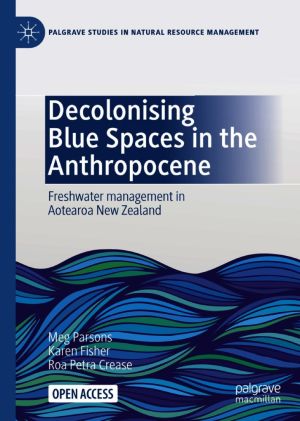Decolonising Blue Spaces in the Anthropocene
Freshwater management in Aotearoa New Zealand
by Meg Parsons, Karen Fisher, Roa Petra Crease
DescriptionDetailsHashtagsReport an issue
The book provides an accessible way for readers coming from a diversity of different backgrounds, be they academics, students, practitioners or decision-makers, to develop an understanding of IEJ and its applicability to freshwater management and governance in the context of changing socio-economic, political, and environmental conditions that characterise the Anthropocene. 






Book Description
This open book crosses disciplinary boundaries to connect theories of environmental justice with Indigenous people's experiences of freshwater management and governance. It traces the history of one freshwater crisis - the degradation of Aotearoa New Zealand's Waipā River - to the settler-colonial acts of ecological dispossession resulting in intergenerational injustices for Indigenous Māori iwi (tribes). The authors draw on a rich empirical base to document the negative consequences of imposing Western knowledge, worldviews, laws, governance and management approaches onto Māori and their ancestral landscapes and waterscapes. Importantly, this book demonstrates how degraded freshwater systems can and are being addressed by Māori seeking to reassert their knowledge, authority, and practices of kaitiakitanga (environmental guardianship). Co-governance and co-management agreements between iwi and the New Zealand Government, over the Waipā River, highlight how Māori are envisioning and enacting more sustainable freshwater management and governance, thus seeking to achieve Indigenous environmental justice (IEJ).The book provides an accessible way for readers coming from a diversity of different backgrounds, be they academics, students, practitioners or decision-makers, to develop an understanding of IEJ and its applicability to freshwater management and governance in the context of changing socio-economic, political, and environmental conditions that characterise the Anthropocene.
This open book is licensed under a Creative Commons License (CC BY). You can download Decolonising Blue Spaces in the Anthropocene ebook for free in PDF format (12.4 MB).
Book Details
Title
Decolonising Blue Spaces in the Anthropocene
Subject
Sociology and Social Sciences
Publisher
Palgrave Macmillan
Published
2021
Pages
505
Edition
1
Language
English
ISBN13
9783030610708
ISBN10
3030610705
ISBN13 Digital
9783030610715
ISBN10 Digital
3030610713
PDF Size
12.4 MB
License

Related Books
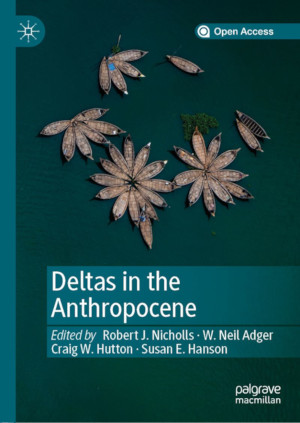
The Anthropocene is the human-dominated modern era that has accelerated social, environmental and climate change across the world in the last few decades. This book examines the challenges the Anthropocene presents to the sustainable management of deltas, both the many threats as well as the opportunities. In the world's deltas the Anthropocen...
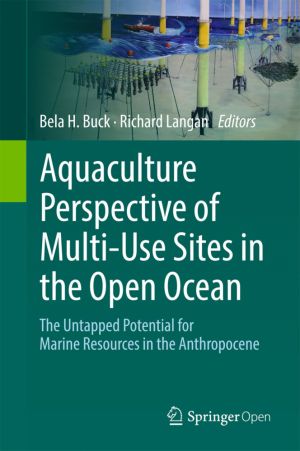
This volume addresses the potential for combining large-scale marine aquaculture of macroalgae, molluscs, crustaceans, and finfish, with offshore structures, primarily those associated with energy production, such as wind turbines and oil-drilling platforms. The volume offers a comprehensive overview and includes chapters on policy, science, engine...

Books about Oxford have generally focused on the University rather than the city. This original book on the local politics of Oxford City from 1830 to 1980 is based on a comprehensive analysis of primary sources and tells the story of the city's progressive politics. The book traces this history from Chartism and electoral reform in the mid-ni...
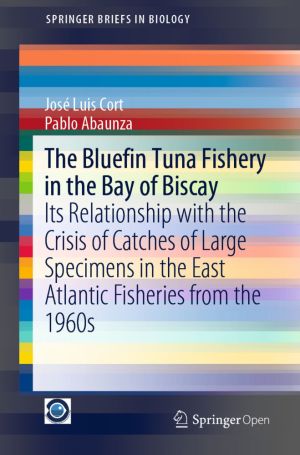
This book is an original contribution to the knowledge on fishing and research associated with one of the most enigmatic fish of our seas: bluefin tuna, Thunnus thynnus (L.). Based on available evidence, it reconstructs the possible methods used to catch large spawners in the Strait of Gibraltar thousands of years ago and describes the much more re...

This twenty-third ICMI Study addresses for the first time mathematics teaching and learning in the primary school (and pre-school) setting, while also taking international perspectives, socio-cultural diversity and institutional constraints into account. One of the main challenges of designing the first ICMI primary school study of this kind is the...
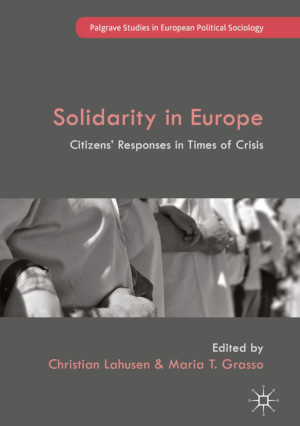
This open access volume provides evidence-based knowledge on European solidarity and citizen responses in times of crisis. Does the crisis of European integration translate into a crisis of European solidarity, and if yes, what are the manifestations at the level of individual citizens? How strongly is solidarity rooted at the individual level, bot...

